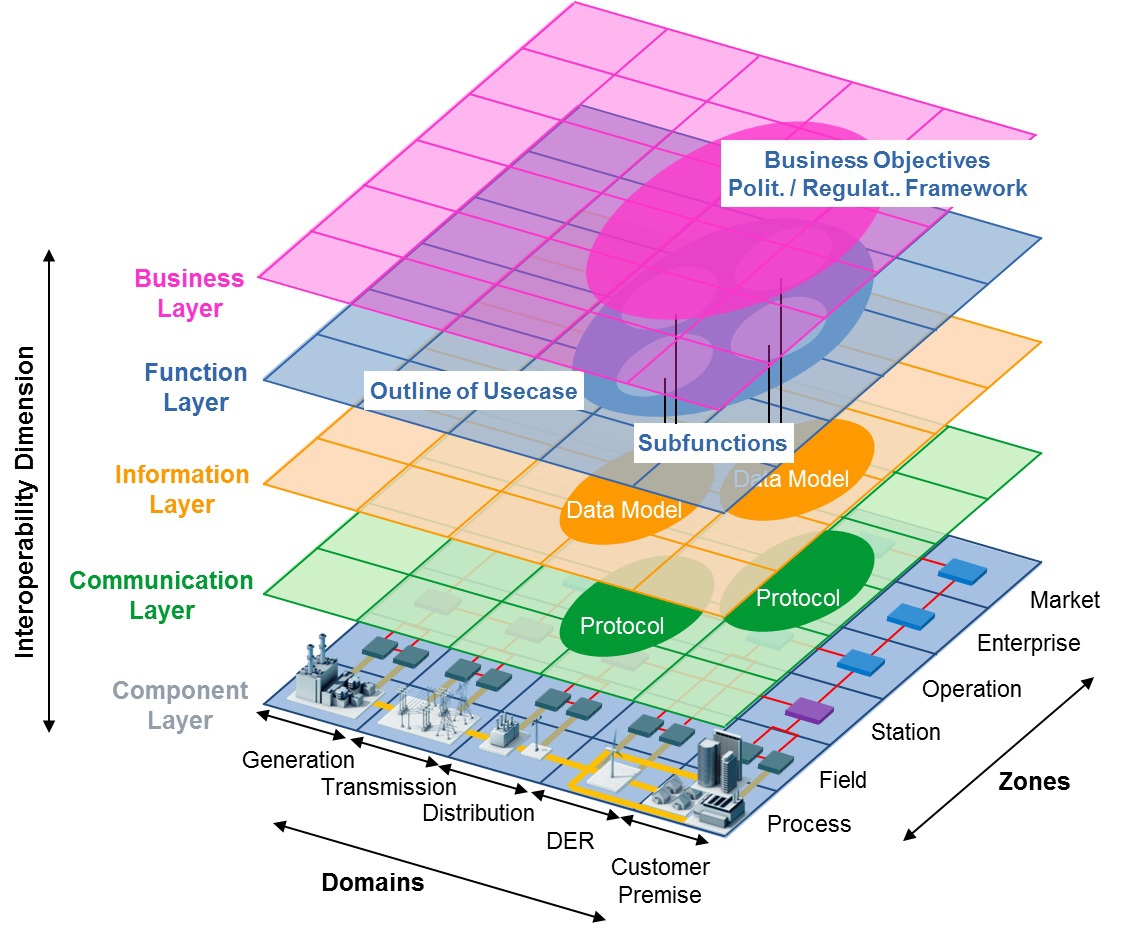Planning, Simulation & Evaluation for Energy Grids
Introduction
Modern power distribution grids will improve the penetration of decentral renewable energy sources for a higher efficiency and less CO2 emission. Novel concepts and a sophisticated information and communication infrastructure are required. The intermittent nature of renewable energy resources, such as photovoltaic systems and wind farms, poses new challenges for the stability and operation of power grids, especially in low distribution and medium voltage transmission networks. In this context, novel control and optimization approaches are necessary for a reliable and efficient operation of power grids.
In addition, a roll-out or expansion of a reliable, secure and cost-efficient communication infrastructure is necessary in order to enable new applications such as demand site management and to realize new concepts such as virtual power plants. Considering particular requirements of different applications and the multitude of available communication technologies, the planning of an optimal and cost-efficient communication network remains an important focus of current research for future power grids. Moreover, the investigation of the dependencies and the interactions between the power grid and the communication network under different design and planning approaches are in the focus of ongoing research.
In order to enable a systematic analysis and development, different approaches for a comprehensive model of smart grids has been proposed as a result of recent efforts in academia and industry. Our modeling and optimization approach is based on the Smart Grid Architecture Model (SGAM), which was presented by SIEMENS in 2012 as an open standard and has later been accepted as a standard by CEN-CENELEC-ETSI standardization committees. Figure 1 shows the reference architecture of SGAM, which all stages of electricity generation, transmission, distribution as well as the communication network and market-related mechanisms into account.

Our research focuses on the following aspects of energy grid planning, simulation and evaluation in accordance with the Smart Grid Architecture Model (SGAM):
- Modeling distributed systems
- Design of communication networks
- Cost optimization in graph-based networks
- Robust and convergent controlling methods
- Resource allocation in communication and sensor networks
- Investigation of communication and security protocols
- Comparison of different systems and modes
Topics
The interdisciplinary nature of future power grids requires the development of sophisticated simulation tools to conduct network analysis and evaluation studies taking account of inter-system dependencies. Thereby, integrated approaches for the simulation of energy networks and communication networks are one of current research topics at our institute.
Contact
For further information contact Dr.-Ing. Gholamreza Alirezaei or Dr.-Ing. Michael Reyer.
***
Aktuelle Informationen gemäß Art. 13 DS-GVO:
Datenschutzhinweis ***
Impressum ***

